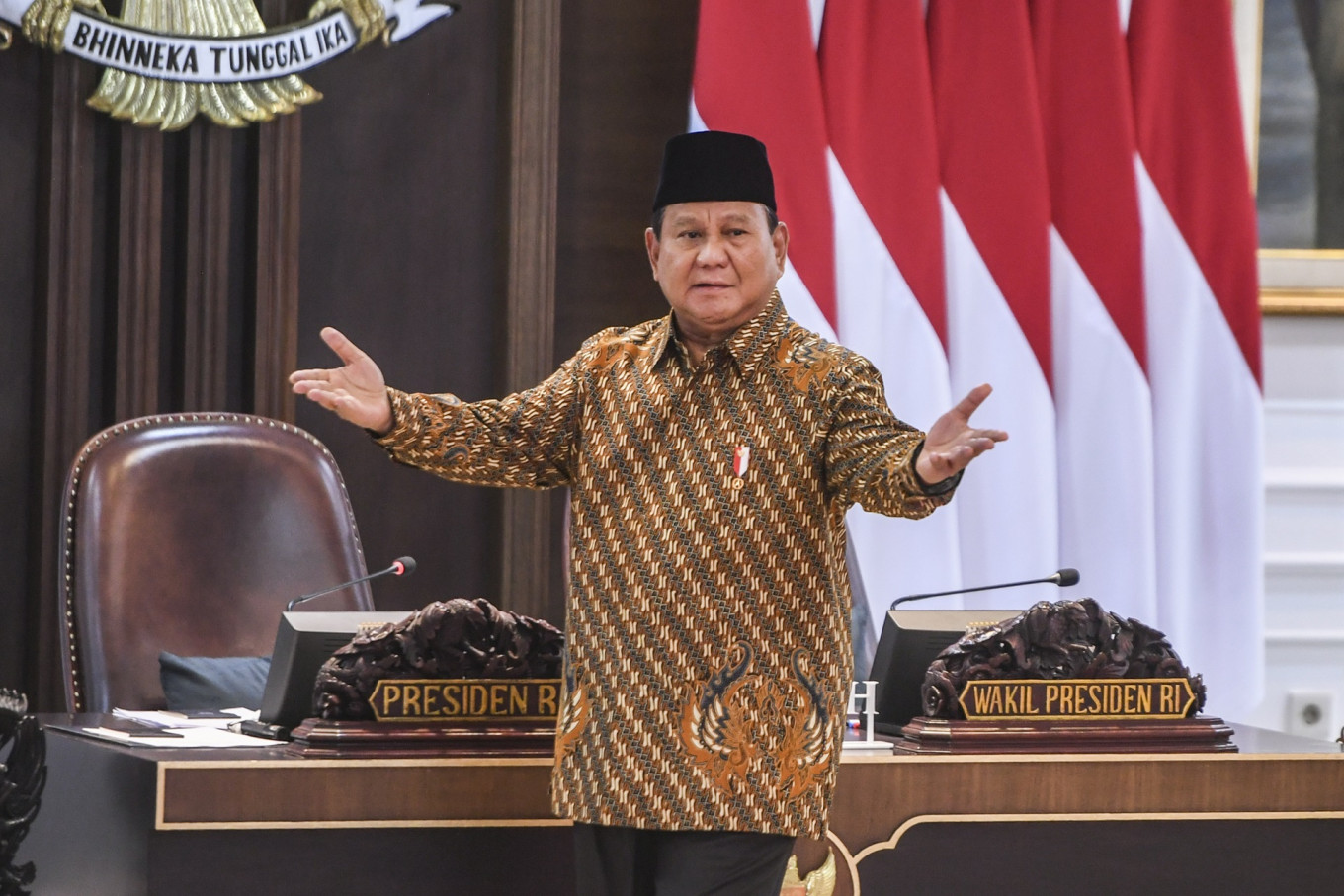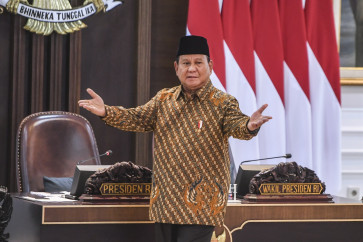Popular Reads
Top Results
Can't find what you're looking for?
View all search resultsPopular Reads
Top Results
Can't find what you're looking for?
View all search resultsPresident Prabowo’s foreign policy test at G20 Summit
At the G20 Summit, Indonesia stands a greater opportunity to promote more representative global decision-making in addressing global and regional security issues.
Change text size
Gift Premium Articles
to Anyone
 President Prabowo Subianto poses ahead of his administration's first cabinet meeting at the Presidential Office in Jakarta on Oct. 23, 2024. In his speech at the meeting, Prabowo urged all his ministers to support his trademark free nutritious meals program and to work efficiently despite the cabinet’s large size. (Antara/Hafidz Mubarak A)
President Prabowo Subianto poses ahead of his administration's first cabinet meeting at the Presidential Office in Jakarta on Oct. 23, 2024. In his speech at the meeting, Prabowo urged all his ministers to support his trademark free nutritious meals program and to work efficiently despite the cabinet’s large size. (Antara/Hafidz Mubarak A)

Less than a month after his inauguration as Indonesia’s eighth president, Prabowo Subianto will find himself on an international podium in Peru and Brazil in November. On this Latin American trip, the President will have an opportunity to address the global audience on the direction of his foreign policy for the next five years.
The President and his entourage will fly to Peru to attend the annual summits of the 21-member Asia-Pacific Economic Cooperation (APEC) and then the Group of 20 (G20) in Brazil. The two multilateral organizations are non-binding groups. While APEC membership is based on its geographic position, the G20 membership is decided by the GDP of the members.
According to its official website, while the G20's decisions are not legally binding, the member states make voluntary commitments, which carry considerable political weight. Decisions are implemented by the relevant bodies, such as the International Monetary Fund or the Basel Committee on Banking Supervision.
This year’s G20 Summit is particularly crucial given the developments throughout the globe, including in the Middle East. Last year, India hosted the summit. Throughout the years, what was originally meant to be a convening for matters on economics and trade has evolved into an informal conclave to collectively steer the direction of global governance more broadly, addressing anything from global health governance to conflict situations.
One of the most critical moments for the G20 occurred in 2022 when Russia invaded Ukraine. Western countries threatened to boycott the summit when Indonesia, as the host, invited President Vladimir Putin to Bali. Fortunately, the meeting proceeded smoothly, after Putin declared his absence from Bali.
One of the biggest focuses was on the COVID-19 pandemic recovery. While this endeavor is now being actively furthered at the World Health Organization, concerns over the next pandemic call for proactivity in ensuring resilience through cooperation. In this regard, advocacy to expedite the completion and ratification of the pandemic treaty, among other adjacent instruments, is pertinent.
In light of this, working groups including Youth 20, have passed consensus-based communiqués, as inputs across a range of priority issues to be addressed by the leaders in Brazil. One of the issues that continues to persist even among the G20 members is that of the global economic and trade architecture.


















